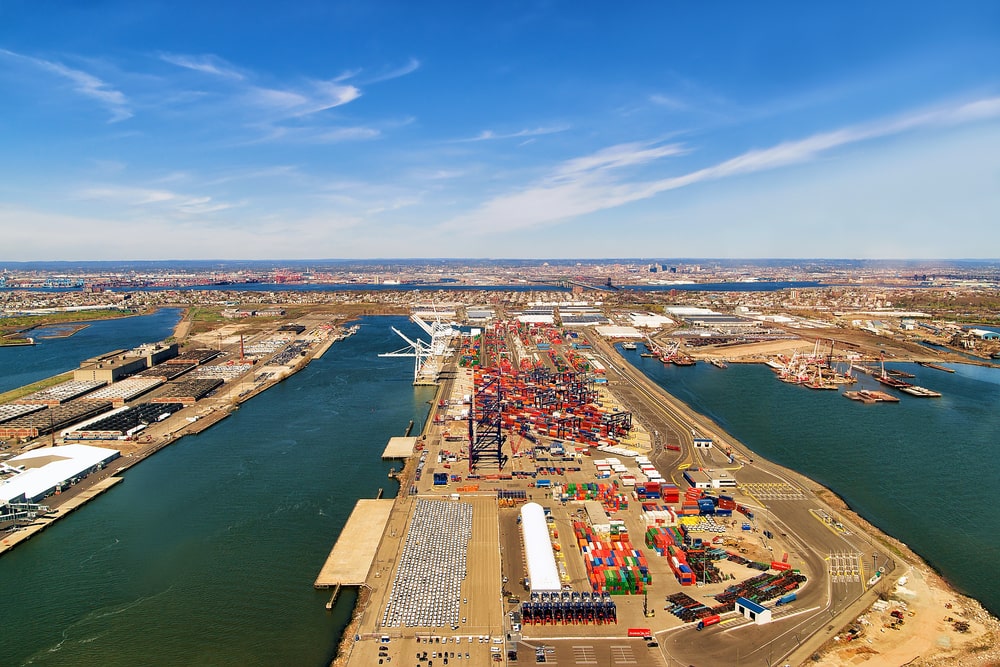
The impounding of thousands of luxury cars at US ports due to a breach of anti-forced labour laws has been described as the "weaponisation of trade".
Over a week ago, the Financial Times reported on the impounding of: “thousands of Porsche, Bentley and Audi cars at US ports after a supplier to parent group Volkswagen found a Chinese subcomponent in the vehicles that breached anti-forced labour laws.” The report notes that the carmaker has: “delayed delivery of the vehicles until as late as the end of March as it replaces an electronic component that was found to have come from “western China”.
The visibility of supply chains (or lack of thereof) that this story identifies is a classic example of connected risk people as VW was reportedly unaware of the origin of the part, which was: “sourced by an indirect supplier further down its supply chain, until the supplier alerted it to the issue. They added that VW notified US authorities as soon as it was made aware of the part’s origin. US-China relations remain mired in their worst state since the countries established diplomatic ties in 1979.”
Increasing number of geopolitical risk commentators are drawing attention to the term “weaponisation of trade,” which is a way of using trade as a tool of foreign policy rather than as an economic goal in and of itself. According to the Centre for Strategic and International studies, this is not a new idea. The CSIS says: “Embargoes and trade restrictions of various kinds go back centuries. Sometimes they have simply amounted to statements of principle, particularly when the affected trade was minimal anyway. Other times they have had an impact. Some historians, for example, argue that the U.S. oil embargo of Japan in the 1930s led directly to the attack on Pearl Harbor.
With tensions swelling in the strait of Malacca connecting China and Taiwan South China sea with the rest of its global trading partners, which includes its main strategic geopolitical rival, the US, this is one of those scenarios that organisations such as Lloyd’s of London are monitoring closely.
Governments are concerned that escalating tensions in the South China Sea could lead to an eerily similar repeat of the 1930s oil embargo or other types of gridlock caused by sanctions, for example. It’s not just governments that must be concerned. Businesses too must be alert to the weaponisation of trade, which can have a direct or indirect impact on their assets, people and profitability.
A typical modern business is a member of an elaborate ecosystem in which supply chains and other connections form a subtle web of connected risk. Each business needs to see its place in this ecosystem so that it can navigate its currents, anticipate events, prepare against threats, and collaborate with trusted partners in growing the ecosystem they share.
In this instance, of the impounding of vehicles bound for markets in the US and other parts of the world, the US prohibits the import of products that have been made with forced labour in the western Xinjiang region and other areas in China under the Uyghur Forced Labor Prevention Act of 2021. The FT reports that the issue: “affects about 1,000 Porsche sports cars and SUVs, several hundred Bentleys, and several thousand Audi vehicles, according to people briefed on the details.” In a statement, VW said it “takes allegations of infringements of human rights very seriously, both within the company and in the supply chain” including “any allegations of forced labour”. It added: “As soon as we received information of allegations regarding one of our sub-suppliers, we have been investigating the matter.
The FT reports notes that: “Questions around forced labour found within its Chinese supply chain are particularly sensitive for VW, which has been facing mounting pressure from human rights groups and investors alike over a facility it jointly owns in Xinjiang’s capital, Urumqi. VW said it would discuss “the future direction of business” in the Xinjiang region with its Chinese joint venture partner SAIC, following the publication of fresh allegations of forced labour in German media.”
“In mid-January, VW discovered that some of its luxury cars bound for North America contained a part that was not compliant with US customs rules, two people with knowledge of the matter said,” said the FT. The part had been: “sourced by a supplier further down the company’s supply chain and not by VW directly, according to the people. Typically, carmakers deal directly with their largest suppliers and may sometimes be unaware of the provenance of smaller parts produced by other businesses further down the supply chain.”
For businesses to thrive in today’s world of complex supply chains and interconnections needs a data and analytics-driven connected solution. Our mission at Russell is to engage with risk professionals and our partners in the (re)insurance and corporate world to create that solution.

Related Articles
Corporate risk
Corporate risk
Corporate risk